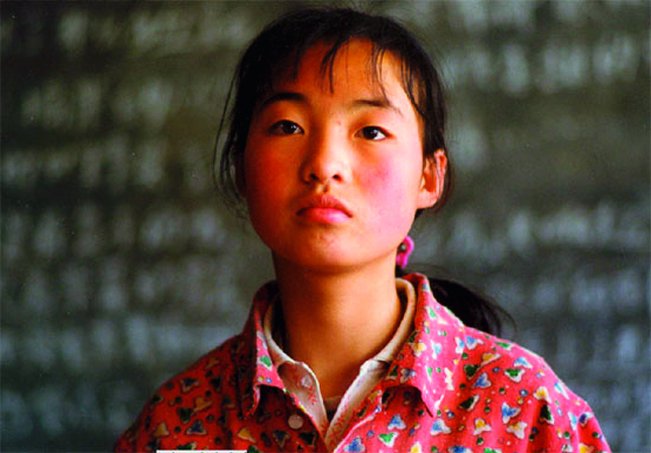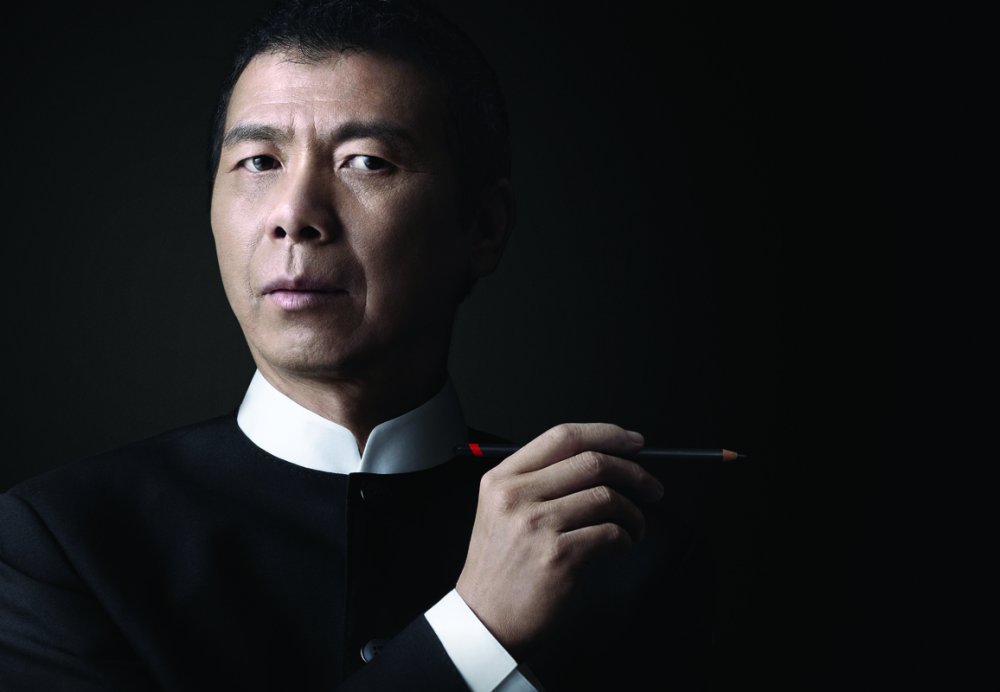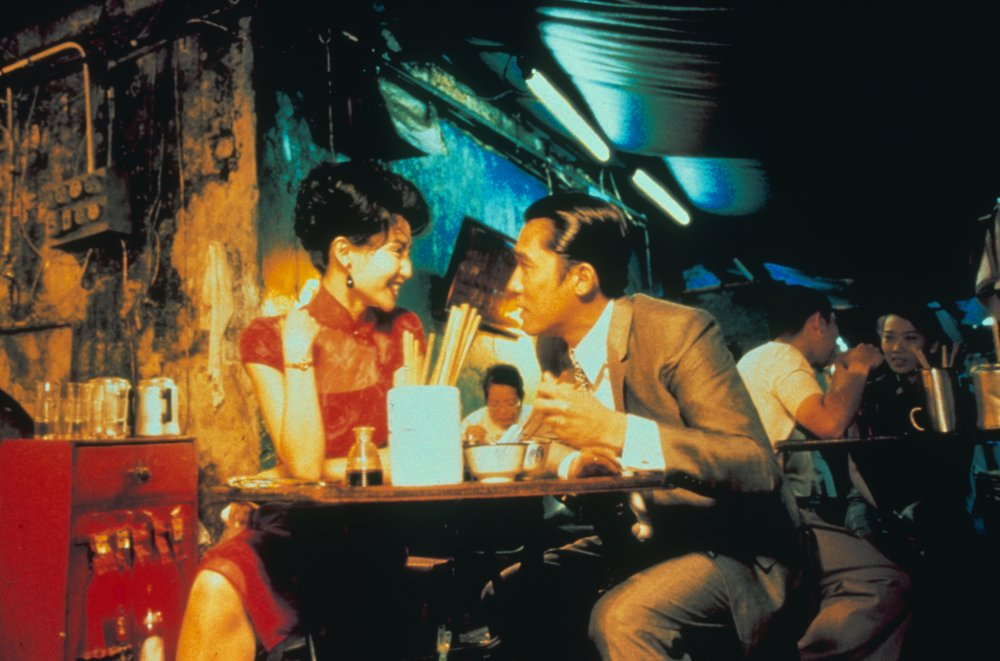
Not One Less (1999)
Prime Minister David Cameron’s highly successful trade delegation to China in December 2013 with Culture Secretary Maria Miller included film for the first time and was represented by BFI CEO Amanda Nevill. Following the trip, during which a landmark film Co-Production Treaty was agreed, the BFI today announces a year of business, trade, creative and cultural collaborations between the UK and China. BFI specific activity, entitled Electric Shadows (the Chinese term for movies or “dian ying”), will encompass the BFI’s full range of exhibition, archive, digital, education, theatrical and DVD distribution and publishing initiatives, opening up previously hard to see Chinese cinema to UK audiences and making UK film accessible to what will soon become the world’s biggest box-office nation. The BFI is working alongside a range of key strategic partners throughout the year including the British Council, DCMS, UKTI and the GREAT Britain Campaign.
The ambitious programme was unveiled today at the BFI’s final Film Forever Roadshow (One Year On) at BFI Southbank, London, as part of the BFI’s International Strategy, in which China was presented as a key priority territory.
Designed to grow mutual economic and cultural benefits for UK and Chinese film, Electric Shadows starts with a rare UK visit in February from China’s most successful and renowned film director Feng Xiaogang, hosted by the BFI. To complement ‘Spectacular China’ a season of his films throughout the month, a special Gala screening of Back to 1942, China’s official entry for this year’s Academy Awards, and an on-stage career interview with Feng will be held at BFI Southbank on 21 February.

If You Are the One (2008)
Alongside a UK presence at FILMART, Hong Kong’s International Film & TV Market in March, the BFI and the British Council will work closely with the Beijing International Film Festival in April to lead a trade delegation and present British film at the festival. From June until October the BFI will continue its Electric Shadows programme by staging an unprecedented exploration of Chinese cinema in the UK ‘A Century of Chinese Cinema’. A programme of contemporary and historic British film from the BFI and partners, including TIFF and the British Council, will be shown in Beijing in the autumn alongside a newly restored and incredibly rare collection of early non-fiction Chinese films (1901-1930’s) from the BFI National Archive.
Amanda Nevill, BFI CEO said:
China is becoming one of the most important cultural and economic partners for film and is a key territory in the BFI’s international strategy for film. With this celebratory year, the BFI puts words into action by presenting a programme packed with dynamic economic, creative and cultural partnerships to foster this hugely important territory and the largest and fastest growing film audience in the world. I can’t think of a better way to launch this most significant year for Anglo-Chinese film collaborations than a visit to the UK from China’s most popular contemporary film director Feng Xiaogang. It’s so exciting for British audiences to discover his work, already enjoyed by literally millions of Chinese film goers.

Feng Xiaogang
Feng Xiaogang UK visit and season ‘Spectacular China’ at BFI Southbank – February 2014
China’s biggest and most popular film director Feng Xiaogang, often described as China’s Spielberg and the first person from mainland China to have his hands and feet immortalised in cement at Hollywood’s Chinese Theatre, will start the celebrations with a special visit to the UK, taking the stage at BFI Southbank to discuss his career in person on 21 February followed by a special screening of Back to 1942 (2012), a drama about the drought in Henan Province during the 1942 Sino-Japanese War and the Chinese entry for the best foreign language film at this year’s Academy Awards. Feng made his name with comedies and satires including Dream Factory and Be There or Be Square, but his reputation and popularity in China were truly sealed with 2002’s Cellphone. Screening in the season of his work at BFI Southbank will be Feng’s joyful romantic comedy If You Are the One (2008) and the rather more dark Assembly (2007) and Aftershock (2010).
UK film at the Beijing International Film Festival (BJIFF) – April 2014
The BFI is working alongside the British Council to present a UK film focus at BJIFF with a view to touring the programme to cities across China. Plans for a delegation of film industry professionals to build relationships and explore opportunities for collaboration, in conjunction with UKTI, are also underway.

In the Mood for Love (2000)
A Century of Chinese Cinema – June to October 2014
BFI Southbank, BFI National Archive, BFI Player, BFI DVD and theatrical screenings across the UK
In June, the BFI will stage a four-month China film season: A Century of Chinese Cinema, showcasing more than 80 films and tracing the shared cultural and historical connections between the cinemas of the mainland, Hong Kong and Taiwan.
The season will be divided into five distinct strands running over subsequent months until October: Golden Age; A New China; Swordsmen, Gangsters and Ghosts; New Waves and New Directions. There will be rarities of the silent era and modern masterpieces, pioneering social dramas, lavish costume epics and classic martial-arts cinema. Highlights of the season include The Goddess (1934), one of the most powerful silent films of all time, starring screen legend Ruan Lingyu; Yuan Muzhi’s Street Angel (1937) a major hit on its release in Shanghai; and Wong Kar-wai’s In the Mood for Love (2000) which is a love letter to much of Chinese cinema history and was no. 24 in Sight and Sound magazine’s Top 50 Greatest Films of All Time in 2012, the highest ranking contemporary film in the poll. The season is in partnership with Toronto International Film Festival (TIFF).
UK film in China – Autumn 2014
The BFI will present a programme of screenings of contemporary and historic British film in Beijing with a view to extending the programme to other Chinese cities. The BFI is looking at a range of British classics alongside a cultural programme of unique and very rare early non-fiction films of China (1901-1930s), the earliest film from 1901 features extraordinary footage from Shanghai’s famous Nanjing Road.





